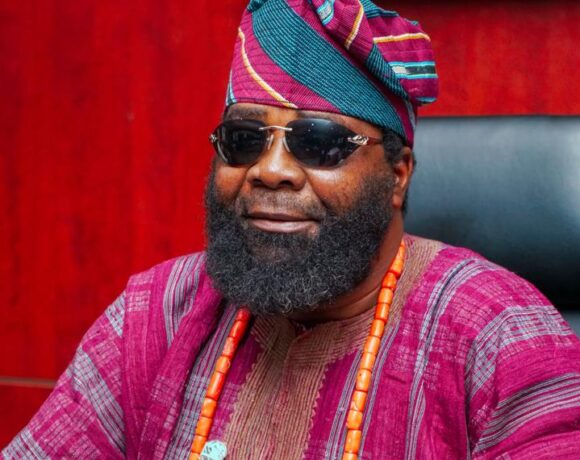Direct Payments to LG Councils: Supreme Court’s Judgement Sets Precedent, But Is It Enforceable?

Key points:
- Judgment takes precedence over Constitutional provisions.
- No one can disobey the judgment; all must comply.
- Judgment stands until overturned by a higher court.
- FG, states, and LGs must collaborate to implement the judgment.
- Immediate compliance is required; no delays or excuses.
By Prof Mike Ozekhome (SAN, CON, OFR)
Many Nigerians and non-Nigerians alike have repeatedly asked me if the Supreme Court was not wrong in its interpretation of Section 162(3), (4), (5) and (6) of the 1999 Constitution and what happens to the allegedly wrong judgement.
They want to know if the judgment is superior to the said “clear” provisions of the Constitution and if it is ENFORCEABLE or capable of being enforced. They also want to know how, in the event that I say it is enforceable. My simple answers to both questions are yes, yes and yes. Let’s take them one after the other.
THE JUDGMENT OF THE SUPREME COURT IS SUPERIOR TO THE PROVISIONS OF THE CONSTITUTION
A law is only what the courts interpret it to be, not what it says on bare paper. That was why Oliver Wendell Holmes Jnr, a very influential civil rights Jurist, Brevet Colonel during the American Civil War and longest serving Justice of the US Supreme Court (1902-1932), who retired from the US Supreme Court at 90, once famously declared that, “the prophesies of what the courts will do in fact, and nothing more pretentious, are what I mean by the law.”
In other words, the law (whether constitutional, substantive, statutory, or adjectival) remains what it is – inanimate and dead on paper until the life and the oxygen of interpretation are breathed into it by a court of law.
Consequently, it is thus the interpretation which was given by the Supreme Court to the entire Section 162 of the Constitution on the sharing procedure between the Federal Government, states and the LGCs, and not the bare provisions of the Constitution that prevails.

Credit: FRCN
IS THE JUDGMENT ENFORCEABLE?
The answer is also in the affirmative. Section 287(1) of the 1999 Constitution comes to our rescue by providing that “the decisions of the Supreme Court shall be enforced in any part of the Federation by all authorities and persons, and by courts of subordinate jurisdiction to that of the Supreme Court.”
Even if the Supreme Court was wrong in its interpretation of section 162 dealing with the State Joint Local Government Account, the judgement remains binding on all and for all times. It is only an amendment of the Constitution under section 9 thereof that can override the decision.
No person or authority can decide, whimsically and arbitrarily to disobey the judgement, or pick and choose what portions of the judgment to obey or which to discard.
In Rt Hon Michael Balonwu & Ors V Governor of Anambra State& Ors (2007) 5 NWLR ( Pt 1028) 488, the intermediate court held that “an order of court whether valid or not must be obeyed until it is set aside. An order of court must be obeyed as long as it is subsisting by all, no matter how lowly or lightly placed in the society.
No person or authority can decide, whimsically and arbitrarily to disobey the judgement
This is what the rule of law is all about, hence the courts have always stressed the need for obedience to court orders.” It therefore does not matter that the judgment is downright stupid, illogical, or not well researched; or that parties affected do not like it. That is what the rule of law dictates and is all about.
See AG Anambra v AG FRN (2008) LPELR-13(SC); Abeke v Odunsi & Anor (2013) LPELR-20640( SC); Ngere v Okuruket & Ors ( 2014) LPELR-22883 ( SC).
Right or wrong therefore, court judgements must be obeyed until set aside by a higher court, or a challenged section is amended by the Legislature.
Since no court is higher than the Supreme Court of Nigeria, only an amendment to the Constitution by the NASS under section 9 can override the judgment:Obineche & ORS v. Akusobi & ORS (2010) LPELR-2178 (SC); Anchorage Leisures LTD & Ors V. Ecobank (NIG) LTD (2023) LPELR-59978 (SC)
That was why the same Supreme Court, acutely aware that it is susceptible to mistakes and errors being constituted by mere mortals and not Almighty God or angels, once famously declared through late venerable Socrates of the Nigerian Bench, Honourable Justice Chukwudifu Oputa, in the causa celebre of Adegoke Motors Ltd v Adesanya (1989) NWLR ( Pt 109) 250, that “the Supreme Court is final not because it is infallible, it is infallible because it is final.”
ON HOW THE SUPREME COURT JUDGMENT IS IMPLEMENTABLE
The answer is equally simple. The FG, states and LGCs should now meet (and I am told they have been meeting) at FAAC and decide on modalities and procedures of opening up accounts for LGCs so that their allocation under section 162 is paid directly to them and not to the joint state LG account that is oftentimes waylaid by state governors and fleeced without the helpless and hamstrung LGCs being able to raise a finger.
Only an amendment to the Constitution by the NASS under section 9 can override the judgment
This is not rocket science. That refusal by state governors to remit to the LGCs was the ugly mischief the apex court judgment sought to cure; and it did so perfectly, loud and clear, in my own humble opinion.
Inter alia, the apex court had declared emphatically that, “by virtue of section 162(3) and (5) of the Constitution of Nigeria, 1999, the amount standing to the credit of LGCs in the Federation Account shall be distributed to them and be paid directly to them”; that “a state, either by itself or governor or other agencies, has no power to keep, control, manage, or disburse in any manner, allocations from the Federation Account to LGCs.”
The apex court also granted injunctive orders restraining “governors and their agents, officials or privies from tampering with funds meant for the LGCs in the Federation Account” ; and further ordered “immediate compliance by the states, through their appointed officials and public officers with the terms of the judgment and orders.”
The apex court further ordered the “Federation or Federal Government of Nigeria through its relevant officials, to forthwith commence the direct payment to each LGC of the amount standing to the credit of each of them in the Federation Account.”
The content, terms and directives contained in this judgement, are in my humble opinion, very straight forward, unambiguous and are as clear and clean as a whistle.
All parties concerned, – FG, states and LGCs- must therefore obey and enforce this judgement IMMEDIATELY. There is no option.
Read Also: Empowering Local Governance: ALGON Advocates For Bottom-Up Approach
I had earlier made public this same opinion of mine. I had written and stated on several TV stations that in my humble understanding of the principles of interpretation, the Supreme Court was right in the interpretation it gave to section 162 of the Constitution, so as to prevent continuation of years of wanton abuse of the provisions of section 162 by state governors.(See “LG Autonomy: Supreme Court’s verdict timely, regenerative-Ozekhome,” www.vanguard.com., 11, July, 2024 ). I still stand very firmly by this my earlier opinion.
God bless Nigeria as we collectively seek true fiscal federalism and not the present unitary system of government that we are currently operating under the thin guise of federalism.
Read Also: The Man In Wole Soyinka Has Not Died
The Insight Report
Nigeria Coverage



